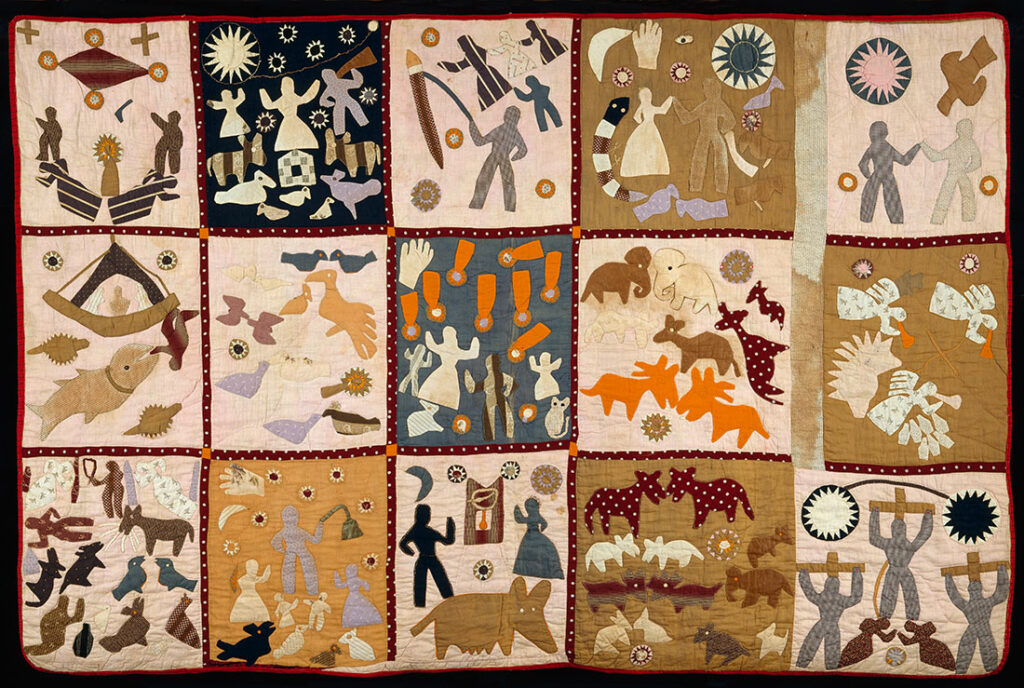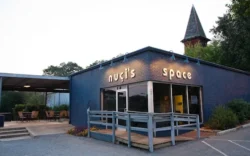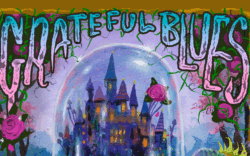Harriet Powers was an enslaved woman turned folk artist during the mid- to late 1800s, regarded as one of the best-known Southern African-American quilt makers, and she was born and laid to rest in Clarke County.
In Athens’ historic Gospel Pilgrim Cemetery, the graves of Powers, her husband Armstead and her daughter were discovered in 2005 by Cat Holmes, a doctoral student in history at UGA. The headstone revealing that Powers died on January 1, 1910, hand-inscribed by her son Marshall, was later found broken and removed in 2008. For 15 years the gravesite has remained marked by temporary banners left to the elements. On Saturday, Dec. 2 at 11 a.m., Powers will receive a new headstone to memorialize her grave and legacy thanks to the sponsorship of the Women of Color Quilters Network (WCQN), led by Carolyn L. Mazloomi.
The Rev. James Washington Jr. will preside over the Harriet and Armstead Powers Recommittal Ceremony. Members of the Powers family and quilters from around the nation will join the Athens community to honor this American icon. Mazloomi notes that just within the last month, many quilters have already flocked to see the new headstone out of respect and admiration for Powers. She projects that in years to come the gravesite and new memorial will attract a lot of traffic from the quiltmaking community.
“So many of them think of Harriet Powers as the mother of African American quilting. So she’s an important historical figure,” Mazloomi says.
The WCQN took action when two network members shared with Mazloomi that they had been searching for Powers’ gravesite for 10 years without any luck due to a lack of a marker or reference. The nonprofit organization’s mission since its founding in 1985 has been to “educate, preserve, exhibit, promote and document quilts made by African Americans.” According to Mazloomi, this mission only becomes more relevant, as there’s a growing modern interest in quiltmaking. Most of the quilts made by the WCQN are narrative quilts, which have a history of being at the core of artistic expression for African American women and representing their social, economic and spiritual lives.
“I like to think of the quilts as historic documents that are really a lens into American history. Only instead of a written history, it’s visual,” says Mazloomi. “We’re dealing with cloth, and we as human beings have a lifelong relationship with cloth. It’s the first thing we’re swathed in at birth. It’s the last thing to touch our bodies upon our death.”
Powers was born into slavery in 1837 near Athens, and she lived more than half her life in Clarke County, specifically the Sandy Creek and Buck Branch areas. Powers began creating quilts after her emancipation using appliqué techniques and storytelling traditional to the textiles of Western Africa. The uneven squares are said to suggest the syncopation of African-American music. Through style and technique, Powers brought together traditional African and African-American influences.

Only two of her quilts survive today: the Bible Quilt displayed at the Smithsonian Museum in Washington, and the Pictorial Quilt displayed at the Museum of Fine Arts in Boston. The Bible Quilt presents a visual narrative of stories ranging from Cain and Abel to the Last Supper. In contrast, the Pictorial Quilt creates a juxtaposition of biblical tales nestled beside real-life stories. The meaning behind the panels of Powers’ quilts is not left for historical interpretation; she provided a key for both pieces that details what each panel represents.
Long after her death, Powers has remained a significant figure in both academic circles and the creative community as an example of the influence and power behind women’s domestic art. Quiltmaking is a unique medium that holds significance as both aesthetic and functional artwork but also a historical and community record.
“Everybody deserves a headstone,” Mazloomi says. “Not only does it let people know where the person’s buried, but for cultural and for historical purposes, too.”
WHO: Harriet and Armstead Powers Recommittal Ceremony
WHEN: Saturday, Dec. 2, 11 a.m.
WHERE: Gospel Pilgrim Cemetery
HOW MUCH: FREE!
Like what you just read? Support Flagpole by making a donation today. Every dollar you give helps fund our ongoing mission to provide Athens with quality, independent journalism.










